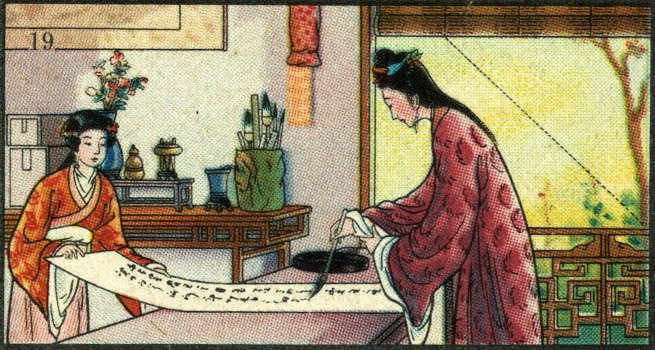
Writing isn’t as much a matter of blind, unconscious expression, as most readers like to think. The best writing is considered, crafted and the result of much hard work and editing after the initial expression of ideas has passed and been found wanting. There are the lucky breaks of good first-drafts and the even more common phenomenon of writers honing the words in their mind for long period before ever putting them down, but most wiring involves many rewritings and adjustments for style and substance to make the lines really sing. Strangely, the forced brevity of Twitter is a good way to practice this process of sculpting words.
I started on Twitter, not as a social exercise, but as a writing exercise. I knew the limitation of 140 characters would force me to think, and being a designer at heart, I have always known to appreciate the inspirational qualities of the limited page you must design within. Along with design, I have also written for a long time and I have come to recognise the utility of putting words down as they come and then working on them till they reach the level of accomplishment you want of them. As soon as I started writing my often obscure tweets, I started a text file into which I’d quickly type out ideas which would be edited till I had a tweet I was proud of putting up.
Most of my tweets start as a thought, about a situation I’ve witnessed or come across in passing, and as I ponder on it, I will often say something to myself, a realisation, sometimes just a stray remark, and from there starts the writing process.
A few months ago, I was pondering on the subject of people who do and people who talk, and I in my head I said to myself:
There is a lot to admire in those who do …
That, I thought, would make a great start to something more and so I wrote down a thought, expanded from that kernel into a vaguely rhyming structure. It said:
There is a lot to admire in the ones who do, and don’t just talk and shout and tell the story, because those who work are very few, among the vast hordes who talk a lot of glory.
That is 178 characters long. Too long, by far, for Twitter, but the basic structure was set and the idea was whole. Now it was merely a matter of pruning till the words both fit and spoke more fluidly. The limitation you set yourself is always a good place to start when editing down words. The allowed length of a tweet was it in this case, so length became the paramount consideration. In his book On Writing, Stephen King mentions a rule he follows where every new draft must be 10% shorter than the last one. That reduction of 10% is the limitation he sets himself, so that would figure quite importantly in his process of editing text.
I needed to shorten the thought. Though the first phrase I did want to leave mostly as it was, it beeing the phrase that set it off, so I tackled the second part. Such rambles as “and don’t just talk” were reduced to a simple “not speak”. I thought “shout” was too exaggerated, so “claim” was better, and “tell” was a bit weak and suggested “sell” purely by sound. Selling stories tells more of a story than the mere act of telling them. Shortening is fine, but you must also strengthen.
“Because” can be shortened to the more poetic, if slightly archaic, “for”. I’m all for the slightly old-fashioned word constructions. I think they add a certain seriousness to things that can’t be denied, and the briefness is most helpful. “Very” is most often a linguistic weakness and to avoid this weakness I actually used “precious” few. The extra characters were worth the strength.
“The vast hordes” could be equally well served by “the mass”, and “talk a lot of glory” was not just long but a loose phrase that could be tightened into the very minimal “talk glory”. And so I got this:
There’s much to be admired in the ones who do, not speak and claim and sell the story, for those who work are precious few, amongst the mass who talk glory.
156 characters. Not a bad reduction for a first pass at it, and the thought had been strengthened. Now it was time to tinker and see if this could be made nicer. “Speak and claim and sell” could be reduced to “speak, claim and sell”. The extra “and” added no significant emphasis. I thought perhaps the very abbreviated “talk glory” was going too far and so I ended up with this:
There’s much to be admired in the ones who do, not speak, claim and sell the story, for those who work are precious few, amongst the mass who talk in glory.
Still 156 characters, but it did sound smoother now. It’s always a challenge to not sacrifice quality and readability at the altar of Twitter character length. As I edit, I generally try to balance out both needs, in phases with more complex thoughts.
It was time to prune and reduce the length significantly again. At such a juncture it’s a good idea to see what words you can simply remove wholesale without affecting what you’re trying to say. The first candidate was the first word, so “There’s much” became a shorter “Much”. An “and” was replaced by an “or”. Punctuation can also help reduce words, so the redundant joining of thoughts using “, for those who work” was reduced to the crisper “; Those who work”. Especially in the connected train of thoughts of a tweet, the semi-colon can be quite useful. And lastly, the more archaic usage “amongst”, which I do have a soft spot for, was reduced to the 2-character-saving “among” with no harm done:
Much to be admired in the ones who do, not speak, claim or sell the story; Those who work are precious few, among the mass who talk in glory.
141 characters is a conundrum I often face. I find I inevitably write or edit down things to this length where it is near perfect but one character above the limit allowed by Twitter. In desperate situations, I have been known to simply leave out the period at the end to fit these in, but I do try other alternatives first.
I turned to a classic writing trick here, of purging some passive language for a more direct active version. The active voice and tone can be more clean and forceful, when that is the required effect, but it’s also often shorter. Hence, “Much to be admired” (18 characters) was reduced to “Much to admire” (a mere 14 characters) taking us well below our limit.
There is always balancing though, and success in living within limitations should never stop you from finding what more can be whittled out of words to make them better. Here I felt talking “of glory” would be much better than talking “in glory”, resulting in the final tweet:
Much to admire in the ones who do, not speak, claim or sell the story; Those who work are precious few, among the mass who talk of glory.
— Samir Bharadwaj (@SamirBharadwaj) November 28, 2012
Ultimately, writing on Twitter is writing, and lives and dies by the same rules and tastes of language as larger pieces of writing do. You can write better on Twitter in the same way you can write better in any medium, by familiarising yourself with the nuances of language and simply expressing things better. Tricks and rules spouted by such venerable sources as The Elements of Style will hold as true in 140 characters as they do in thousands of words. You just need to adapt and understand them, write from the heart and edit from the head.
Writing a well-crafted tweet, or any well-crafted words edited down from stray thoughts inevitably involves some of these steps:
- Remove redundant words
- Use better, clearer and more meaningful words
- Avoid the passive voice when it’s unnecessary
- Punctuate to crispness
- Balance the needs of brevity with the needs of expressing well.
Keep some of these in mind and you will write well-crafted tweets. And remember that tweets are often just a sentence. Learn how to write a better sentence, and add more such sentences at the end of the first one, and almost anything becomes possible.
Samir
Liked this article? Please share it: ![]()
![]()
![]()
![]()
![]()
![]()



Samir, what you say is very important, it’s not what you think on first instance, you better clean your thoughts before putting them down but do you want to know a secret? Not many of us humans do what we should and we end up with words that are meant to be said not written…so thank you for your wise advise and your very nice tweets and comments
Magali
Thank you!
And while not many of us humans do what we should, no many humans always read my well crafted messages, so it’s OK. 😉
Thanks for being one of the consistent exceptions. 🙂
Great piece on honing writing skills!
Very nice post with awesome writing skill. Thank u so much for the advice that u have mentioned. Keep posting with lots more.